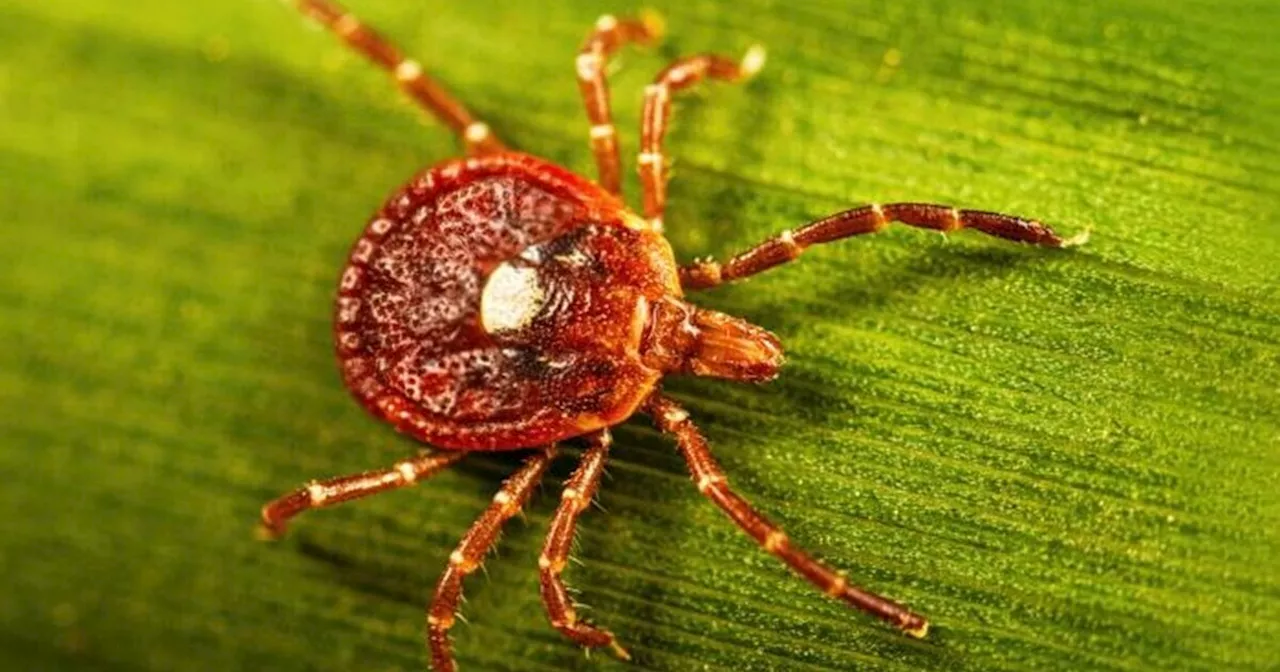Researchers have reported the first known death attributed to alpha-gal syndrome, a red meat allergy triggered by bites from the lone star tick. The case involves a 47-year-old pilot from New Jersey who passed away after consuming a hamburger at a barbecue. This incident highlights the increasing severity of tick-borne illnesses and the critical need for awareness surrounding alpha-gal syndrome.
The findings were published by researchers at the University of Virginia School of Medicine. According to the report, the pilot began experiencing severe symptoms about four hours after eating. His son later found him unconscious in a bathroom, surrounded by vomit. Despite immediate medical attention, he was pronounced dead at a hospital, with the autopsy listing the cause of death as a sudden unexplained event.
The pilot’s wife revealed that he had previously experienced discomfort after eating red meat, including symptoms such as abdominal pain, nausea, diarrhea, and vomiting. Initially, these incidents were misinterpreted as food poisoning or other temporary ailments. This case underscores the challenges of recognizing and diagnosing alpha-gal syndrome, which can lead to life-threatening reactions, especially in undiagnosed individuals.
Prior to the fatal incident, the pilot had similar reactions after consuming steak, indicating a possible pattern linked to red meat. Despite these warning signs, the family did not seek medical attention until it was too late. A blood sample taken post-mortem showed evidence of an allergic reaction, while further investigation confirmed the pilot had received multiple bites from lone star ticks, the primary vectors of alpha-gal syndrome.
Alpha-gal syndrome results from the immune system reacting to alpha-gal, a sugar molecule found in mammals. When the pilot consumed red meat, his body mounted a severe allergic response, leading to his tragic death. Experts are increasingly concerned about the role of lone star ticks in spreading this condition, particularly as the number of reported cases has surged. The Centers for Disease Control and Prevention (CDC) estimates that up to 450,000 people in the United States may be affected by alpha-gal syndrome, indicating that the actual prevalence may be far higher than documented.
The delayed diagnoses and misinterpretations of symptoms among patients and healthcare providers exacerbate the problem. The pilot’s case serves as a stark reminder of the allergy’s potential severity and the importance of early detection and management. The CDC encourages testing for alpha-gal syndrome in patients presenting with unexplained gastrointestinal symptoms, such as diarrhea and abdominal pain.
Growing concerns about the lone star tick population further illustrate the public health implications. The rising temperatures and habitat shifts are believed to facilitate the northward migration of these ticks, increasing the risk of tick-borne illnesses in broader regions. The spread of lone star ticks poses a significant challenge, as it exposes more people to alpha-gal syndrome.
Preventive measures are essential in mitigating the risk of tick bites. Experts recommend using insect repellent, wearing protective clothing, and avoiding habitats where ticks thrive. If bitten, promptly removing the tick and saving it in a plastic bag can assist healthcare professionals in identifying the species and testing for diseases. Early removal is crucial to minimizing the risk of infection and associated health complications.
Currently, there is no vaccine for alpha-gal syndrome, and the primary management strategy involves dietary changes, specifically eliminating red meat from the diet. The tragic death of the pilot emphasizes the urgency of raising public awareness about alpha-gal syndrome, promoting timely diagnosis, and educating healthcare providers on its symptoms and management.
The report from the University of Virginia calls attention to the pressing need for a deeper understanding of alpha-gal syndrome, its triggers, and effective strategies for both prevention and treatment. As the number of cases continues to rise, so does the necessity for a collective response to this emerging public health concern.
